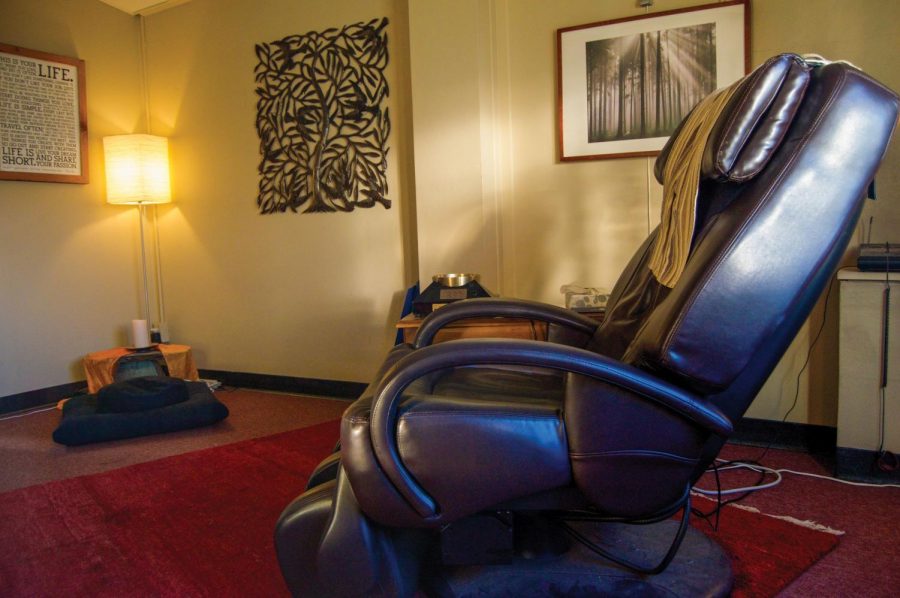Relieving finals stress
December 1, 2015
With finals week approaching, students may be struggling with time management during a period of time that typically causes immense stress for students.
Although stress can sometimes act as a positive source of motivation, it can also distract students from their studies and impede their cognitive and test-taking abilities.
According to Bonnie Hemrick, mental health promotion coordinator for Counseling and Psychological Services, stress puts students in a constant state of fight-or-flight that can be physically and mentally exhausting and can have lasting effects on health and wellness.
This constant state of being on-edge can cause students to experience test anxiety during finals week.
“A lot of test anxiety comes from fear of failure, poor test history or lack of preparation,” Hemrick said.
Professionals in fields of both health and academics recommend against sleepless nights studying.
“Just because we like to talk about pulling an all-nighter as a badge of honor, doesn’t mean it’s a great thing to do, especially during finals week,” said Jesse Nelson, director of the Academic Success Center.
Nelson said staying up all night before an exam reduces students’ cognitive ability by about 30 percent.
According to Amanda Daugherty, assistant director of health promotion at Student Health Services, a shortage of sleep affects the brain’s ability to move information from short term to long term memory. She said that staying awake longer to study is negated by the negative impact that sleeplessness has on cognitive processing.
Though students have a larger load of responsibility during finals week, there are many resources available on campus to help them finish out the term.
Hemrick recommends that students take advantage of mental health resources offered by CAPS like counseling appointments, and the mind spa, which offers guided meditation, biofeedback programs and a full body massage chair. She also recommends practicing mindfulness meditation.
Hemrick said mindfulness meditation, a common strategy for maintaining mental health, is also highly applicable to stress management for students whose finals-week woes often stem from worrying about both past and future exams.
“Essentially, as soon as you leave an exam, there’s nothing you can do about it, so the point of stressing about that doesn’t make a whole lot of sense,” Hemrick said. “And then if something hasn’t happened yet and you’re worrying about the outcome, that also is something that doesn’t do a lot for you beneficially. So it (mindfulness) is kind of about appreciating where you are in this exact moment.”
The academic success center provides resources like peer tutors at the writing center, academic coaching, study tables, and supplemental instruction for some subjects.
The biggest consensus among stress management professionals is that students need to take time to sleep and take breaks from studying.
“If you’re just constantly trying to put information in, and not giving it time to actually settle in and get absorbed, then it’s going to be harder to recall,” Hemrick said.
According to Sarah Norek, administrative program assistant at the Academic Success Center, taking breaks throughout a study session not only provides mental relief, but also helps the brain learn how to remember information.
Daugherty recommends that students create a kind of ‘tool belt’ of things that they know will help them to relax. She said that it is important to make time for leisurely activities once in a while even in the midst of finals week chaos.
Nelson recommends that students study a little bit of each subject in increments each day, rather than spending an entire day with one subject.
Hemrick said students should take care of their bodies and minds during finals week — maintaining hydration during study sessions, using a reward system and maintaining connections with family and friends for social support.
























































































































